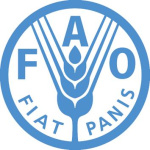- Industry: Agriculture
- Number of terms: 87409
- Number of blossaries: 0
- Company Profile:
Established in October 1945 with the objective of eliminating hunger and improving nutrition and standards of living by increasing agricultural productivity, FAO coordinates the efforts of governments and technical agencies in programs for developing agriculture, forestry, fisheries, and land and ...
Describing an allele whose effect with respect to a particular trait is not evident in heterozygotes. Opposite to <i>dominant</i>.
Industry:Biotechnology
Describing animals and plants possessing either male or female reproductive organs, but not both.
Industry:Biotechnology
Describing any group of organisms that are assumed to have originated from the same ancestor.
Industry:Biotechnology
Describing embryonic tissue at a stage when it can develop only as a certain kind of tissue.
Industry:Biotechnology
Describing plasmids which replicate to produce many plasmid molecules per host genome, e.g., pBR322 is a multi-copy plasmid, there are usually 50 pBR322 molecules (or copies) per <i>E. coli</i> genome.
Industry:Biotechnology
Describing tissues or organisms that are not made up of separate cells but often have more than one nucleus.
Industry:Biotechnology
Describing tissues, organs or organisms consisting of a single cell.
Industry:Biotechnology
Description of a organism or a cell stock certified as being free of certain specified viruses following recognized procedures of virus diagnosis.
Industry:Biotechnology
Designation given to foods, drugs, and other materials that have been used for a considerable period of time and have a history of not causing illness to humans, even though extensive toxicity testing has not been conducted. More recently, certain host organisms for recombinant DNA experimentation have been given this status.
Industry:Biotechnology
Destruction of tissue by pathogenic micro-organisms or their toxins, especially through infection of a wound.
Industry:Biotechnology
